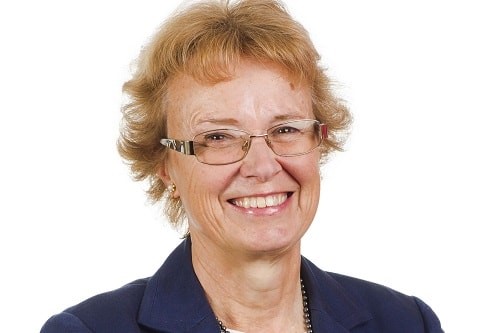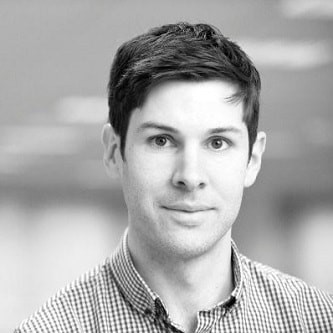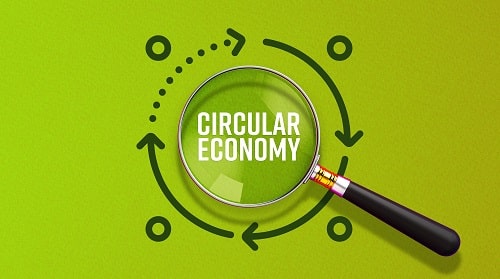Safety practitioners must have good communication skills to get workers to ‘buy-in’ to health and safety, say recruitment specialists Shirley Parsons and Liam Tiddy.
Features
It’s good to talk
Shirley Parsons is a chartered IOSH professional with over 30 years’ health and safety consulting experience. She founded Shirley Parsons Ltd in 2005 to provide a specialist high quality recruitment service to the health and safety sector.
Liam Tiddy joined Shirley Parsons Ltd in 2005 and is now head of search for the organisation. Here, they reflect on some of the skills that a health and safety practitioner needs to succeed in the modern workplace – and make themselves attractive to potential employers.
What has changed in health and safety recruitment since you started in 2005? Obviously, we’ve had the Equality Act and the whole explosion of wellbeing since then. Have expectations changed from employers along these lines?
Liam: The expectation around what a health and safety professional brings has changed a great deal since 2005. Back then it was viewed as a role based upon preventing a company getting into trouble. Now it’s about hiring the non-technical skills as well as the technical skills – how can your health and safety staff help the company achieve its overall goals – not just the health and safety goals. There is a more commercial aspect to the job.
Shirley: Communication skills are now key. A top health and safety person was not valued as much in 2005, but the ability to reach the boardroom is now more achievable. In addition, legislation such as the Corporate Manslaughter Act has really made company directors and owners sit up and take notice of health and safety; they can now be personally prosecuted and, in the worst cases imprisoned, the fines have also increased significantly.
We’re now in a pandemic. What skills should practitioners be developing to make themselves more employable during the crisis?
Shirley: Health and safety personnel need to be able to communicate remotely; they need to be more technically aware and able to influence people online rather than just face-to-face. They need to be calm, reassuring, a safe pair of hands, knowledgeable and able to give staff the confidence to carry on working by minimising risk. I don’t think they necessarily need any more qualifications.
 Shirley Parsons: "A top health and safety person was not valued as much in 2005, but the ability to reach the boardroom is now more achievable."
Shirley Parsons: "A top health and safety person was not valued as much in 2005, but the ability to reach the boardroom is now more achievable."
There was a knowledge gap around pandemics; nobody took the risk seriously, least of all the government. Going forward, there will be more requirements from insurance companies etc, to see companies’ business continuity plans.
Liam: Some of the larger manufacturing organisations with a strong presence or interest in China and Asia had a degree of measures in place to deal with local outbreaks of the coronavirus.
From a more general perspective, the skills health and safety advisors will need to demonstrate will include adaptability and empathy – working with people under pressure for a variety of reasons, whether it’s production issues or financial pressure concerns, or even losing their jobs.
Do you think health and safety is a more aspirational job nowadays, or does it still suffer from the man with a clipboard image?
Shirley: Yes definitely! It’s become well respected. Most clients now say they don’t want someone with a clipboard image. Health and safety professionals have to be influencers; they can no longer say ‘do this because I say so’; they need to encourage and empower people to do things because it’s the right thing to do. People used to roll their eyes when you said you were in health and safety; it was known as the anti-fun department or ‘elf and safety’! They saw you as preventers rather than enablers – that has definitely changed.
Liam: Furthermore, people are now trying to move into the health and safety industry from other fields, there is less of a stigma about being a health and safety professional, indeed there is real kudos in certain roles.
 Liam Tiddy: "There is real kudos in certain roles."
Liam Tiddy: "There is real kudos in certain roles."
Who has been your best placement and why?
Liam: It’s not about any individual placement, it’s more about giving the correct advice and helping people to develop. Placements will then follow.
Shirley: Managing somebody’s career is really rewarding, and sometimes they come back as a client after you’ve placed them as a candidate. We have clients who we placed in their first job
as a graduate, and we are now seeing them as health and safety directors 15 years later.
Can you predict when someone won’t work out? Have there been any hard lessons on the way?
Shirley: We try really hard to establish suitability before the job goes to placement. We question people in depth about their motives, commitment to the role, their family situation, will they be prepared to move, arrange childcare etc. It’s about gauging their expectations of what they want from a role, and whether it will be right for them.
There is no point in trying to put a square peg in a round hole. However, we’ve been known to put forward candidates whose qualifications on paper don’t fit all of the requirements but their personality is perfect for the organisation.
I’ve often said that you can teach the technical aspects of the role but attitude is inherent. Give me a person any day who has some of the qualifications and the right attitude to learning and communicating than someone with a string of qualifications and lower interpersonal skills.
Do you think the industry is doing enough to appoint female candidates onto board level roles in health and safety?
Shirley: Well, there aren’t enough female candidates to start with – only 22 per cent of health and safety people are female. Consequently, there are not enough women to put forward for board level roles.
We quite often get asked for female candidates, even though companies aren’t supposed to do that, because women have more empathy, they’re better at listening and more conscientious – not that I’m biased of course! However, it’s a national problem, not just in health and safety. In my experience, women can often shy away from putting themselves forward for a role unless they are 100 per cent sure they can do it, whereas men tend to be more confident that they can do a role even though they may not have all the skills.
In addition, childcare needs to be more equally shared and I believe this will make a massive difference to seeing more women in top jobs. There are some excellent female candidates, but they are in the minority, mainly because of family issues and pressures.
Liam: Quotas don’t really work either, whether it’s for racial or sex equality. Women, if they take maternity leave, which can often be at the point they are building their career, can lose three to five years of experience in their career path, and quite often want to go back part time.
I speak to lots of clients who are keen to hire women, there isn’t inherent sexism in the sector, it’s just that as you get higher up, you tend to find the supply of female candidates is stifled by the trajectory of their earlier career.
Do you think responsibilities of health and safety people will change, and if so, how? For example the developing fields of wellbeing or leadership.
Shirley: The role of the health and safety practitioner has already changed to encompass wellbeing and this is even more topical due to the current Covid situation. I believe this is here to stay. Looking to the future, more and more health and safety directors operate at board level and with this come leadership responsibilities, making the role of health and safety in an organisation even more key. It’s a brave company that ignores the implications of getting it wrong.
Liam: The role is always evolving, with wider leadership responsibilities around it. Health and safety professionals have to be more aware of the responsibilities that other personnel have. You mentioned wellbeing, but there is also business continuity and business risk management. Health and safety is all about business enhancement; the best people will be ahead of the curve and will see where the potential future problems will emerge.
FEATURES

How to build circular economy business models
By Chloe Miller, CC Consulting on 07 April 2025
Widespread adoption of a circular economy model by business would ensure greater environmental and economic value is extracted and retained from raw materials and products, while simultaneously reducing carbon emissions, protecting the environment and boosting business efficiency and reputation.

What does the first year on an accelerated net zero path have in store for UK businesses?
By Team Energy on 07 April 2025
The UK is halfway to net zero by 2050 and on a new, sped-up net zero pathway. In light of this, Graham Paul, sales, marketing & client services director at TEAM Energy, speaks to TEAM Energy’s efficiency and carbon reduction experts about the future of energy efficiency and net zero in the UK.

Aligning organisational culture with sustainability: a win, win for the environment and business
By Dr Keith Whitehead, British Safety Council on 04 April 2025
The culture of an organisation is crucial in determining how successfully it implements, integrates and achieves its sustainability and environmental goals and practices. However, there are a number of simple ways of ensuring a positive organisational culture where everyone is fully committed to achieving excellent sustainability performance.



